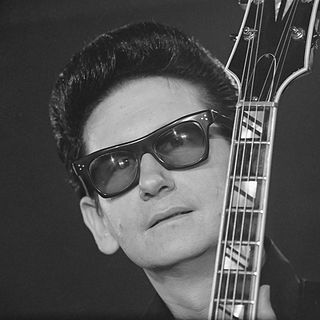
Roy Kelton Orbison was an American singer, songwriter, and guitarist known for his distinctive and powerful voice, complex song structures, and dark, emotional ballads. Orbison's music is mostly in the rock music genre and his most successful periods were in the early 1960s and the late 1980s. He was nicknamed "The Caruso of Rock" and "The Big O". Many of Orbison's songs conveyed vulnerability at a time when most male rock-and-roll performers projected strength. He performed with minimal motion and in black clothes, matching his dyed black hair and dark sunglasses.

Nuggets: Original Artyfacts from the First Psychedelic Era is a compilation album of American psychedelic and garage rock singles that were released during the mid-to-late 1960s. It was created by Lenny Kaye, who was a writer and clerk at the Village Oldies record shop in New York. He would later become the lead guitarist for the Patti Smith Group. Kaye produced Nuggets under the supervision of Elektra Records founder Jac Holzman. Kaye conceived the project as a series of roughly eight LP installments focusing on different US regions, but Elektra convinced him that one double album would be more commercially viable. It was released on LP by Elektra in 1972 with liner notes by Kaye that contained one of the first uses of the term "punk rock". It was reissued with a new cover design by Sire Records in 1976. In the 1980s, Rhino Records issued Nuggets in a series of fifteen installments, and in 1998 as a 4-cd box set.
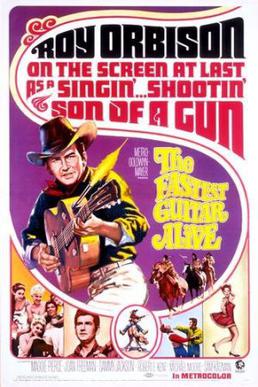
The Fastest Guitar Alive is a 1967 American musical comedy Western film directed by Michael D. Moore and starring singer Roy Orbison in his only acting role. The film features Orbison performing seven original songs, which appeared on his 1967 MGM album of the same name. His song "There Won't Be Many Coming Home" is featured in the 2015 western film The Hateful Eight.
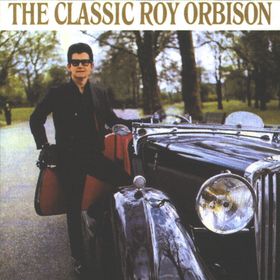
The Classic Roy Orbison is the ninth studio album recorded by Roy Orbison, and his third for MGM Records, released in July 1966. The single taken from it, "Twinkle Toes", was Orbison's last US top-forty single during his lifetime, scraping in at No. 39. It reached No. 24 in Australia and No. 29 in the UK. The album spent eight weeks on the album chart in the UK, peaking at number 12.
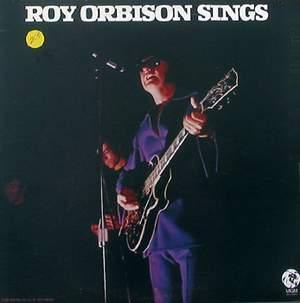
Roy Orbison Sings is the sixteenth album recorded by Roy Orbison and the ninth for MGM Records, released in May 1972. Around this time, Orbison's hit singles had well and truly dried up, but this album is said to be one of his finest.
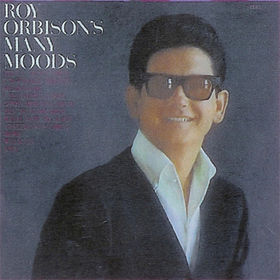
Roy Orbison's Many Moods, also known as The Many Moods of Roy Orbison, is the thirteenth album recorded by Roy Orbison, and his seventh for MGM Records, released in May 1969. It included two singles, both of which were minor hits in the UK: "Heartache" at number 44, and "Walk On" at number 39.

There Is Only One Roy Orbison is the seventh album recorded by Roy Orbison, and his first for MGM Records, released in July 1965. It features his studio recording of "Claudette", an Orbison-penned song which had become a hit for the Everly Brothers in 1958. Ironically, at the time he recorded the song in 1965, he had divorced his wife Claudette, who had inspired the lyrics. Orbison later re-recorded the song for In Dreams: The Greatest Hits in 1985. The single taken from the album was "Ride Away", which reached no. 25 in the US charts, no. 12 in Australia and no. 34 in the UK. Cash Box described "Ride Away" as a "rhythmic teen-angled ode about a somewhat ego-oriented lad who cuts-out on romance." Bear Family included the track "Ride Away" in the 2001 Orbison 1955-1965 box set.
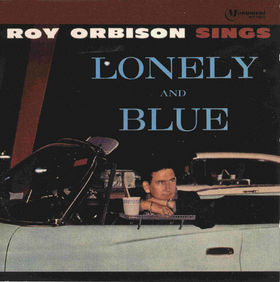
Lonely and Blue is the debut studio album by Roy Orbison, released on Monument Records in January 1961.

Memphis is the seventeenth album recorded by Roy Orbison, and his tenth for MGM Records. The album was released in November 1972.

The Orbison Way is the eighth album recorded by Roy Orbison, and his second for MGM Records, released in January 1966. Two singles were taken from the album — "Crawling Back" and "Breakin' Up Is Breakin' My Heart" — both of which were chart hits in England, the US and Australia.

Roy Orbison Sings Don Gibson is a tribute album recorded by Roy Orbison for MGM Records. Released in January 1967, it is a collection of songs written by Country Music Hall of Fame singer/songwriter Don Gibson who, like Orbison, often wrote about the loneliness and sorrow that love can bring. Its one single, "Too Soon to Know", became a smash hit in the UK, reaching #3 there in September 1966, and also reached no. 4 in Ireland and no. 27 in Australia. In Canada, the song only reached no. 71.

Cry Softly Lonely One is the twelfth music album recorded by Roy Orbison, and his sixth for MGM Records. The album was released in October 1967 and included two singles: "Communication Breakdown" and the title tune, both of which were minor hits in the States early that year. "Communication Breakdown" did much better in Australia, where it reached No. 9 in February. According to the official Roy Orbison biography, the London Records release of this album featured the extra track "Just One Time".
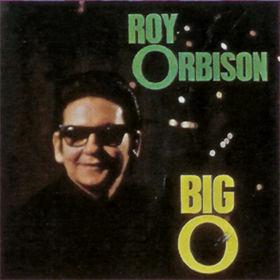
The Big O is the fifteenth music album recorded by Roy Orbison, and according to the authorised Roy Orbison biography, his second for London Records in the United Kingdom. The music and backing vocals were provided by English group, the Art Movement on all tracks except for "Penny Arcade", which was a studio recording and was released as a single in 1969, peaking at No. 27 in the UK and was Orbison's last UK chart success during his lifetime. "Penny Arcade" was also his biggest hit in Australia, spending four weeks at number one around Christmas 1969. The second single, "Break My Mind", was Orbison's last Australian chart success during his lifetime, reaching #24 in March 1970. The album was released in Europe in early 1970.
Donald W. Gant was an American singer, songwriter and record producer.

Hank Williams: The Roy Orbison Way is the fourteenth album recorded by Roy Orbison, and his eighth with MGM Records, released in August 1970. It is a tribute album to the songs of honky tonk singer Hank Williams, whom Orbison listed among his influences. The album was a critical failure and it sold poorly—Fred Foster said it was "an exercise in futility." The exclusively North America release remained relatively unknown to Orbison fans until it was repackaged on Compact Disc in 2009 along with the popular 1967 Don Gibson tribute album Roy Orbison Sings Don Gibson. The album was also included in the 2015 box set The MGM Years 1965–1973 – Roy Orbison.
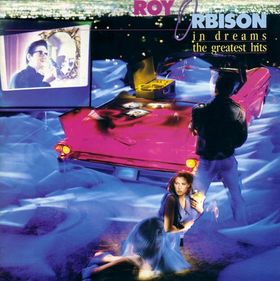
In Dreams: The Greatest Hits is a two-record album set by Roy Orbison songs released in 1987 on Virgin Records. It was produced by Orbison and Mike Utley, except for the song "In Dreams", produced by Orbison with T-Bone Burnett and film director David Lynch. All songs are re-recordings by Orbison from 1986, except "In Dreams" from April 1987.
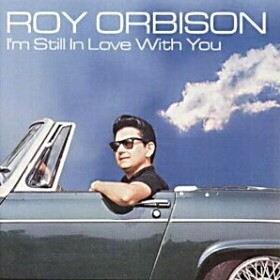
I'm Still in Love with You is the nineteenth album by Roy Orbison, recorded for Mercury Records and according to the authorised biography of Roy Orbison, released in September 1975.
The History of Rock and Roll is a radio documentary on rock and roll music, originally syndicated in 1969, and again in 1978 and 1981. It is currently distributed as both a 2+1⁄2-minute short feature on internet networks, and a two-hour weekly series hosted by Wink Martindale, distributed to radio stations nationwide. This list below reflects the contents of the more widely heard 1978 version of The History of Rock & Roll.
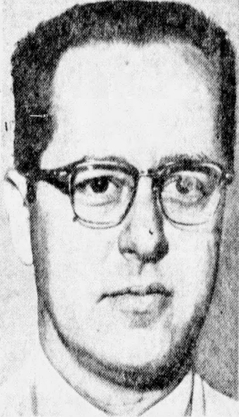
William Krohmer McElhiney was an American musical arranger, trumpeter, band leader, and musical director who was based in Nashville, Tennessee. As a performer, his most notable contribution was the signature trumpet parts on Johnny Cash's "Ring of Fire". He was one of the most prominent musical arrangers in Nashville during the 1960s and 1970s, doing arrangements for Brenda Lee, Patsy Cline, Roy Orbison, Danny Davis, Marty Robbins, and Dolly Parton. He was honored as Best Arranger of the Year at the 1972 Billboard Country Music Awards. He also served as musical director at Nashville's WSM-AM radio.
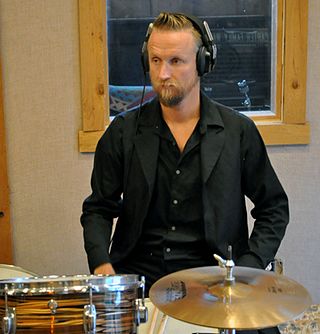
Alexander Orbison, also known as Orbi, is an American drummer, writer, director, and film producer. He is the president of Still Working Music Group, a publishing company. He is also president and co-founder of Roy's Boys LLC, which manages the legacy of his father, musician Roy Orbison; the organization also includes his brothers, Roy Orbison Jr. and Wesley Orbison.


















